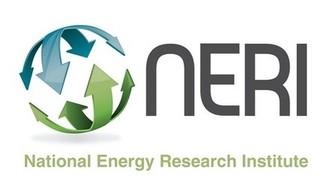Solar Fuels Workshop
The Otago Future Fuels workshop, OFF, chaired by Prof Sally Brooker, will be hosted by the University of Otago from Thursday 7 to Friday 8 February 2019.
Registration is open – “first in best dressed” = places are very limited!
All delegates are encouraged to present a poster, and hence also an abstract (template file AbstractTemplate_OFF; please keep to one page, with 2.5cm margins, and email it as a word doc to Sally at sbrooker [at] chemistry.otago.ac.nz before 17 Dec). Student speakers will be selected from abstracts submitted.
Confirmed tutorial presenters:
- Prof Toni Llobet (ICIQ Spain) – “Inspired by nature – photocatalytic water oxidation”
- Prof Julio Lloret Fillol (ICIQ, Spain) – “Electrochemical methods of analysing hydrogen evolution catalyst performance”
- Prof Tom Meyer (Chapel Hill, USA) – “Finding Solar Fuels”
- Dr Anna Garden (Otago) – “Theoretical modelling of metal alloy surfaces for catalysing hydrogen evolution”
- A/Prof Ivan Diaz-Rainey (Finance, Otago; Co-Director of the Otago Energy Research Centre (OERC)) – “International and National Energy Transition: Market, Policy, Innovation and Science”
- Prof Edwin Constable (Basel, Switzerland) – “TBA”
- Prof Richard Blaikie (Physics, Otago; Deputy Vice-Chancellor Research and Enterprise) – “Highly efficient solar-to-hydrogen energy conversion based on innovative nanophotonic platform”
- Prof Garry Hanan (Montreal, Canada) – “Supramolecular effects in solar energy conversion”
- Dr Linda Wright (Chief Executive of NZ Hydrogen Assoc) – “TBA”
- Dr Aaron Marshall (Chemical Engineering, Canterbury) – “Methods and processes for investigating electrocatalytic CO2 reduction”
OFF has been timed to fit in with the MacDiarmid Institute for Advanced Materials and Nanotechnology international conference, AMN9, in Wellington starting Sunday afternoon 10 February. The trip from Dunedin to Wellington is a short flight (make sure its direct!) which can easily be done on one of the days that weekend, perhaps after a yummy breakfast at the Dunedin Farmers Market at the Railway Station on the Saturday morning (from about 8am).
The workshop will feature tutorials by experts in the field, as well as student talks (selected from the submitted poster abstracts) and posters. There will be a prize for the best student talk, and there will be poster prizes too.
Delegates are housed at Studholme Residential College (for Wed-Fri nights). This college is a 5-10 min walk to the University.
Registration starts at 8AM in the main foyer of the Chemistry Department (red R1 on the map; ground floor between Science II and Mellor buildings). Lectures will start upstairs in the Mellor Lecture Theatre at 8.30am.
3D Campus Map (note that North is pointing DOWN in this map, not up as is standard practise!) – showing the handy footpath/steps down the hill from Studholme to the road and campus, and the location of the entrance to the Chemistry foyer/Mellor (red R1 on map). The Mellor lecture theatre is up the foyer stairs to the second floor of Mellort (for the tutorials/lectures).
2D Campus Map (with North pointing up as is usual on maps, so this is opposite to the 3D map!) – showing not only Studhulme and the Mellor building but also a range of (not all!) nearby food outlets.
The aim of this OFF conference is to bring together researchers, especially from New Zealand, who have an interest in solar/future fuels. Whether you’re an active researcher in an established group, or an honours student with an interest in this field, OFF will provide a basic education in the field, from the fundamentals through to case studies of published systems by way of measurement techniques and theoretical modelling. We aim to keep the cost as low as possible for attendees by holding this OFF workshop at a convenient time (immediately before AMN9) and keeping the organisation cheap and cheerful.
The University of Otago, New Zealand’s first University, has an international reputation for research excellence. It is New Zealand’s most research intensive university and a top-ranked university for research quality. It celebrates its 150th anniversary in 2019.
Dunedin is renowned for its spectacular beauty and is also a gateway to the beautiful scenery of Central Otago and the Catlins. Majestic Victorian and Edwardian architecture, a proximity to an abundance of wildlife and a healthy youth culture make for an exciting and fascinating visit. Early February is a great time to see Yellow Eyed Penguin and albatross chicks on Otago Peninsula, and if you like this sort of thing then a visit to Orokonui Eco-sanctuary is also a must.
Advisory committee:
- Prof Garry Hanan (Montreal)
- Dr Anna Garden (Otago)
- Dr Carla Meledandri (Otago)
We look forward to seeing you in Dunedin in February 2019!
Professor Sally Brooker
Conference Chair

